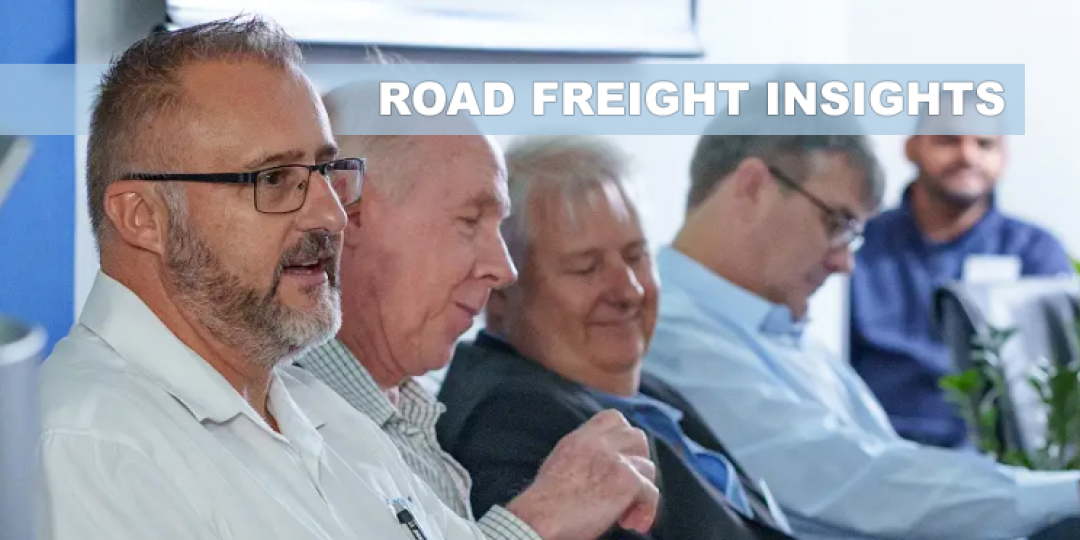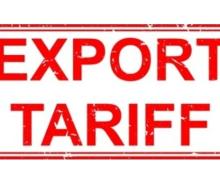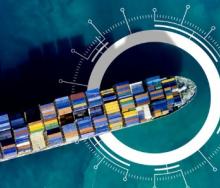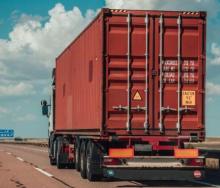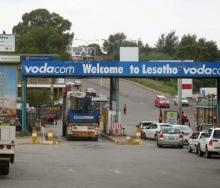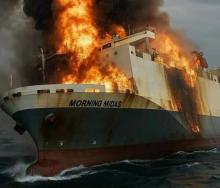South African transporters are paying a premium for non-compliant operators who hire foreign nationals at low rates and skimp on maintenance, which results in accidents and congestion on the country’s roads.
This was the insight Road Freight Association CEO Gavin Kelly shared with KwaZulu-Natal transporters at the MasterDrive Power Brunch hosted in partnership with Michelin Connected Fleet on Friday.
Kelly was speaking during a panel discussion, covering a wide range of issues affecting the transport sector.
The panel included Paul Nordengen, director at Heavy Vehicle Transport Technology Africa; Charl Lensley, B2B On Sales director at Michelin Tyres South Africa, Willie Coetsee, chairperson of the Durban Chamber of Commerce and Industry Durban Port Business Forum, and Anneline Pillay, sales manager at Standard Bank Commercial Asset Finance.
Jonathan Mphake, national fleet manager at SBV South Africa, who delivered the keynote address, also highlighted the importance of compliance and maintenance as well as driver training and telematics.
Kelly said compliant operators were forced to pay the price incurred on the roads when non-compliant operators failed to maintain vehicles or move overweight loads, resulting in crashes and congestion.
He added when trucks owned by compliant businesses stood in traffic queues or were caught in congestion on the roads due to breakdowns of poorly maintained fleets and crashes, fuel consumption rose and there was additional wear and tear on a truck’s brakes as it edged slowly forward.
“When a truck is in a queue or caught anywhere in congestion, it eats fuel, and sometimes it eats fuel at a faster rate. The driver cannot switch off the engine and go and stretch his legs because if he does he will lose his place in the queue,” he said.
“You also must pay your driver because he is in the place of work, and you must pay overtime. At a stop and go the brakes take a hammering, the compressors and the slack adjusters all have an issue depending on where you are and what the cadence of the road is,” Kelly said.
He said operators who did not comply with the Road Traffic Act and more stringent trailer manufacturer specifications ended up “destroying your own assets, chewing up your tyres and you can run foul of the law”.
“I cannot stress maintenance more. Many of the incidents on the road are maintenance-related when a vehicle fails, and yes, the driver is 80% of the problem. Predelivery checks are important,” he said.
The issue of foreign drivers being hired below the minimum wage continues to be a problem.
“One of the very important challenges is foreign drivers. Whether we like it or not there are operators out there who employ foreign drivers and will pay those drivers R3 000 a month instead of the minimum wage of R10 000 a month,” he said,
These operators hire drivers on the promise they can make R3 000 a day if they do two long return trips a day at a price of R750 per leg, which negatively impacts driver behaviour. However, he said compliant operators paid drivers R10 000 a month, and chose the safest routes, which was more expensive, but in the long run, worked out cost-effective.
“Compliance will save you money. You need to help us make the non-compliant companies comply or you will comply yourself out of business,” he said.
Lensley said many transporters were facing these challenges in isolation, including managing their fuel bills, the safety of drivers, and the management of vehicle maintenance, including tyres. He said fitting high-quality tyres not only helped to reduce fuel consumption but also environmental targets such as CO2 emissions.
“Tyres have a rolling resistance, and every manufacturer can reduce the rolling resistance, which means you can reduce fuel consumption. Everything that goes into the compound of the tyre is something that will enable a tyre to wear at a specific rate,” he said.
“The long and short of it is that rubber goes somewhere, between 15 to 20% goes into the atmosphere and the rest into water,” he said.
“Your truck uses 50% of its fuel to move the truck inertia and 50% you are spending on rolling resistance, so investing in tyres will reduce the amount of fuel you burn (one litre of diesel burned emits 2.66kg of CO2),” he said.
Lensley said tyres and driver behaviour could play a role in reducing fuel consumption and carbon emissions.
“Looking at the total cost of business talks to profit, people and the environment,” he added.
Mphake highlighted that it was important to adopt a structural approach to fleet maintenance, including investing in quality tyres rather than cheap imports, and implementing fuel management solutions, including exploring alternative fuel technologies.
“There is a need for telematics and the proper usage of data, including driver insights and customer fulfilment data acquired,” he said.
The use of telematics, including the video monitoring of drivers, would help to improve safety, entrench good driver behaviour, allow for the collection of data for insurance claims and reduce accidents, he added. However, it is important for operators to get drivers to understand they will benefit from the process.
According to the Road Traffic Management Corporation, road accidents cost the country R186.5 billion in 2022.
On the issue of truck tyres and pollution, MasterDrive CEO Eugene Herbert who moderated the: Power Brunch, said the world’s truck fleet had grown from 1.2 billion vehicles in 2015 to 1.5bn in 2024, representing a 15% increase in rubber on the roads. Some 14.4 million tonnes of rubber were shed from tyres due to wear and tear in 2013.
